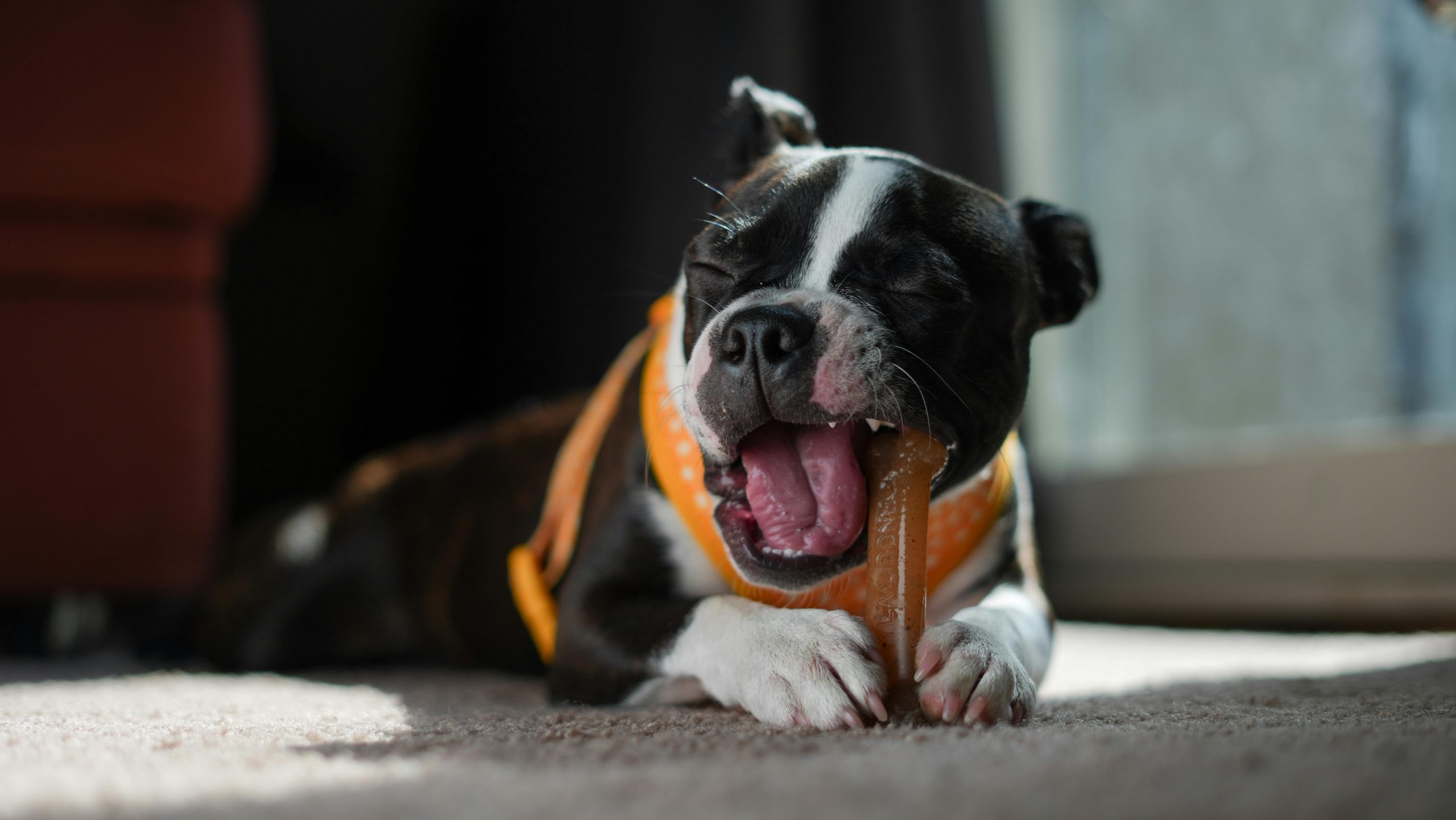Destructive chewing is a common problem for dog owners, but it’s a behaviour that can be controlled. By using the right training techniques, you can prevent destructive chewing and protect your belongings. In this post, we’ll discuss effective methods to stop your dog from chewing on furniture, shoes, or other household items.
Identify the Cause of Chewing
Before addressing the behaviour, it’s important to understand why your dog chews. Dogs may chew for a variety of reasons, including boredom, anxiety, teething, or a lack of proper training. Identifying the cause is crucial to choosing the most effective solution. For example, puppies may chew to relieve the discomfort of teething, while adult dogs might chew due to anxiety or lack of stimulation.
Provide Appropriate Chew Toys
One of the best ways to prevent destructive chewing is to offer appropriate chew toys. These toys satisfy your dog’s chewing instincts and keep them engaged. Additionally, rotating chew toys ensures your dog doesn’t lose interest. Always choose durable toys that can withstand vigorous chewing.
Limit Access to Tempting Items
Another effective strategy is to limit your dog’s access to items they might chew. Using baby gates or crating your dog when unsupervised can prevent them from reaching household objects. By controlling their environment, you reduce the temptation to chew on inappropriate items.
Create a Structured Routine
A well-structured routine is crucial for a dog’s mental and physical well-being. Dogs that don’t get enough exercise or stimulation are more likely to chew destructively. Ensuring your dog gets regular walks, playtime, and training sessions will help prevent boredom and reduce the urge to chew out of frustration. A busy dog is less likely to focus on destructive habits.
Use Deterrents for Inappropriate Chewing
If your dog continues to chew on inappropriate items, consider using a deterrent. There are sprays available that are specifically designed to deter chewing. These sprays have an unpleasant taste that discourages dogs from chewing. However, always make sure the deterrent is safe for pets.
Consult a Professional Trainer
If your dog’s destructive chewing persists, consulting a professional trainer can help address the issue. Trainers can evaluate your dog’s behaviour and develop a personalized plan to stop the chewing. Whether the behaviour is anxiety-driven or caused by a lack of discipline, a trainer can offer tailored solutions.
Conclusion
Preventing destructive chewing in dogs is achievable with the right strategies. By identifying the cause, offering appropriate chew toys, redirecting unwanted behavior, and ensuring a structured routine, you can put an end to the problem. With patience and consistency, your dog will learn to chew appropriately and leave your belongings safe.






